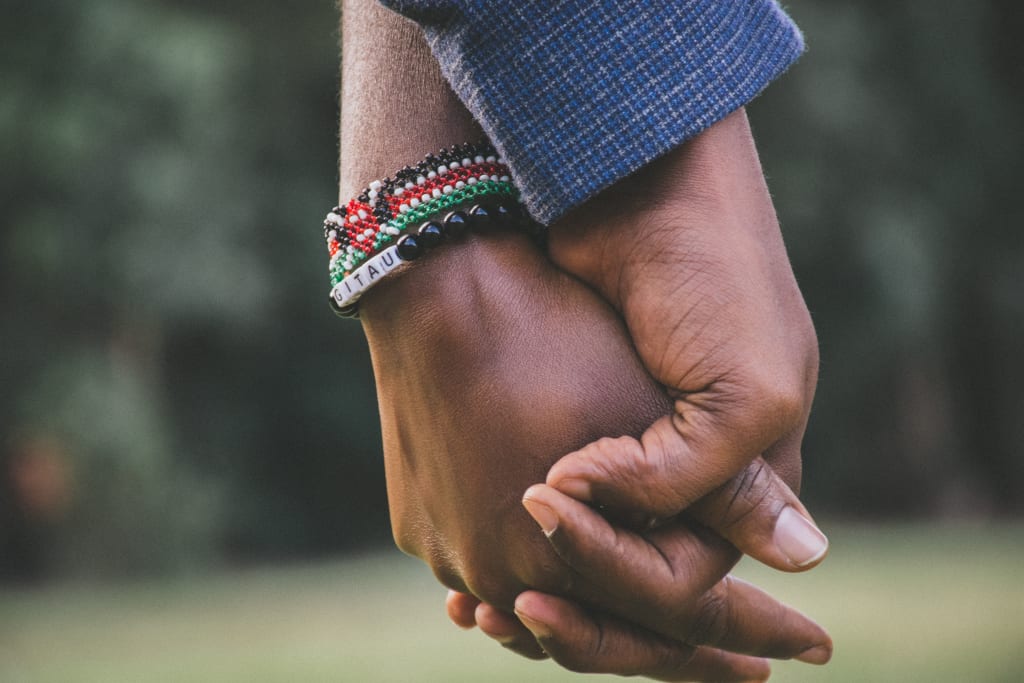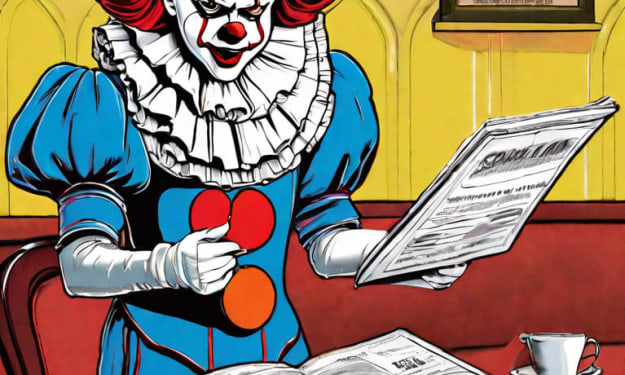What's Love Got To Do With It?
A review that breaks down the new hit film of 2022

From the producers of the London’s Critics award winning film, Love, Actually, comes a new British film, What’s Love Got to Do With It?, which follows the storyline of a prestige film-maker from the UK, Zoe, who wins the approval of her best friend, Kaz Khan, to document his journey on the way to his assisted marriage.
According to The National Government website, there were only 337 cases of Forced Marriages amongst British citizens in 2021. So, it's no surprise that Zoe was appalled to know that her best friend agreed to this process on his own accord! In line with his Pakistani Heritage, Kaz agrees to connect with a marriage arranger, who leads him to the attendance of an event with the purpose of bringing young adults with the same intentions into alignment with each other, with the belief that interest may form, and eventually marriage. As the plot continues, Kaz realizes the hypocrisy that’s occasionally involved within arranged marriages, as secrets are revealed, including drug use and the consumption of alcoholic beverages to even bear with the process of arranged marriage.
This film executes the concept of documentation exceptionally. As a journalism student myself, I was blown away by the implementation of individualism and personalisation that the producers intertwined within this piece, as they implicate the aspect of observational documentation through the use of hand held camera techniques as Zoe, the protagonist, captures the darker elements of arranged marriages, with references to disownment in the family, as well as the acceptance of discontentment in a marriage as long as its situated in the name of the Pakistani heritage. This film recognises many symbolic traditions that completely disassociate themselves with an individual's personal thoughts, beliefs and desires, as it separates itself completely from the concept of self choice. It breaks the barrier against conversation of disownment and rejection within one’s family home, which happens often amongst ethnic minorities, especially when there’s an associated ingredient of religious views attached to it, which occasionally creates the process of following laws a chore rather than a form of peace, hope and enjoyment that it’s been created to be. The development of Participatory Documentation was evident throughout this cinematic piece, with the use of personal stories, fourth wall break and collaboration to establish a clearer relationship between the filmmaker and the interviewees, which were the Khan family of course, which allows room for a further dive into the characteristics of our fictional subjects.
It brings to life the exposure of a young adult's struggles with love, and the pressure that our environment, and those around us - family members especially, may bring, and touches on the gripping demeanor that many young women face today - the process of always choosing the wrong men, and the aspect of consistently stumbling into the arms of the men who won’t treat us right. Okay, let’s be honest - it’s more like falling gracefully into their arms…
The point is, I’d never seen that point of ideation being spoken about in such a way, with such a playful, witty character like Zoe to execute the concept perfectly, in a way that a young female audience can relate to directly. This ideology stands as a psychological aspect amongst the lives of many young women, as some female perfectionists become quickly committed to a person who seems to represent every weakness they don’t want to possess themselves. Their friends will scratch their heads in bewilderment, and try to adapt to someone who none of them have anything in common with. This is often because the perfectionist, which, in this case, our protagonist Zoe, being unable to resolve her own weakness, badness and imperfections, will instead quickly attach themselves to someone who does possess them. She projects what she is unable to tolerate within herself onto her beloved. In this way, she is still, in relation to all these parts of herself, yet she dosen;t have to take ownership of the,. What is not worked out in our souls is often found in those that we choose. With a thin line between true love and platonic friendship, watching the exciting desire being developed between Kaz and Zoe was one of a kind, and extremely satisfying after viewing her distasting choices of men.
The mother and daughter development between our protagonist Zoe and her mother Cat takes on a realistic approach in relation to the adaptation of closeness and understanding, which grew their bond overall, as the fear of generational relationship repetition that once crippled Zoe to one position eventually melted away. It showcased the projection of an overbearing mother over the controlling position over the child’s life, without any concern of the child’s personal choice, which also has correlation to Kaz’s problems, as he too faces the inability to make his own choices due to the domineering factors in his family home.
It goes to show that Kaz and Zoe aren’t so different after all, and their previous circumstances work as a formation towards their eventual alignment.
So, remember, love plays a substantial part in our desire for one another, but every other element still applies, including sacrifice, commitment and willingness to grow and develop, as well as adapt to one another’s historic traditions, be open to religious views, and to be enthusiastic towards one's cultural heritage, which all fall under the blanket of love, intimacy and tenderness.
So, what does love have to do with it, you ask?
The answer to your question is, everything, of course…
References:
Boundaries in Dating by Henry Cloud and John Townsend





Comments
There are no comments for this story
Be the first to respond and start the conversation.